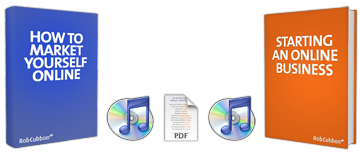Online learning is the future. If you have any sort of stake in the online economy, taking and selling online courses should be central to your business. The self-paced e-learning market will make $51.5 billion in 2016 according to the E-Learning Market Trends Report by Docebo.

If the above facts alone aren’t enough for you, there’s much, much more: E-teaching is one of the best ways get your message out there, make money and enhance your brand.
How I started selling online courses
At the beginning of 2013, I published a free course on Udemy – just a few YouTube videos I,d made showing how to create a website with WordPress. The course started filling up with students and it got positive feedback.
Buoyed by this success, I created more free and paid courses to see if I could supplement my active income (doing graphic and web design work for clients) with passive income.
To my delight, the courses started selling. Slowly at first, the first few months a few hundred dollars, then over $1000/month, then over $2000/month.
By the beginning of 2016, I had earned more than $100,000 on Udemy. $50,000 of which came from 2015 alone. You can track this in my income reports. It was life changing.
But that,s just one platform. I,m not saying you should sell your courses there. There are hundreds of sites to sell your video courses and you should also sell them from your own site.
Why selling online courses is amazing
Selling online courses to over 100,000 people from over 200 countries around the world has been one of the best things that ever happened to me.
I travel the world; I create video courses; I write books; I put out free content; I employ people to help me with the tasks I don,t like doing; I also employ people to work for my clients; I have revenue in my business that I,m investing in new brands and new businesses. It’s a good life.
Everywhere I go these days, I’ll already know someone. Students, instructors, entrepreneurs – people from all over the world from different backgrounds – we,re all connected by a mutual desire to educate ourselves and help others to educate themselves.

I was passing through Manila last year on my way to a conference. I was contacted by a Filipino guy named Niel Reichl. We met at the Mall of Asia, and he introduced me to Halo-Halo, a famous Filipino dessert. He knew me through online learning.
It,s fantastic, when you arrive in a new city, to be shown around by a local.
What online courses do I teach?
My courses are aimed at solo entrepreneurs. The information in my courses could, potentially, earn you thousands of dollars online. This sounds like an incredible boast but that,s how much I,ve made and my courses explain how I,ve done it.
You can find free courses here on setting up a website, WordPress, email marketing, passive income, design, etc., here: robcubbon.com/freecourses
And, you can find my premium courses on WordPress, content marketing, design, passive income, and entrepreneurship here: robcubbon.com/courses
And how much do I charge?
But I,m proud that I can sell this information at a price ($10-$27) that is affordable to most people living in “developed” and “developing” countries. What,s wrong with that?
People say I should charge a premium price ($999 or $4999 plus) for access to information that will help people set up six-figure businesses.
Internet marketers preach that high-value information should come with a high price tag. But personally, I would hate to charge thousands of dollars for courses. Desperate people will miss house or car payments in order to purchase courses that they hope will turn their lives around.
The preachy internet marketers then argue that people don,t value products at $10-20 and therefore don,t attach enough importance to them. This is true. Some people will purchase the course and never take it.
For me, it,s about numbers. But the numbers aren,t of US Dollars. More people will take my courses when sold at affordable prices. I will change more people,s lives for the better than if I charged high prices.
The world I was brought up in
The world I was brought up in was restrictive, inflexible and frustrating.
Your ability to get a “good job” depended on your experience, which depended on your University education, which depended on how well you did at school. If you hadn,t done well at school, you wouldn,t get a good degree and you wouldn,t get a “good job”.
So the type of “good job” you could hope for depended on your university degree, which depended on the subjects you were good at around the age of 11-12.
If, in my case, by the time your mid-20s came along and you weren,t a successful rock musician, oh well, you were going to do crappy jobs for the rest of your life.
Now, kids are investing sums of around $30,000 in further education that’s not even going to guarantee them a crappy job.
The new world order
The job for life within a large organization is gone. You are much better off investing a few dollars in online courses to learn saleable career skills.
As well as skills, connections are vitally important to the new world order. But they are nothing like the cozy bar room introductions of the elite in the old world order.
Connections in the new world order are multi-national and highly-targeted. A graphic designer in London can connect with PHP developers in Eastern Europe or India. Employment and money can flow within seconds.
This is a huge disruption. Not only do these connections bypass the old corporate, class and geographical boundaries, but also the business transactions are performed without the accounting, contractual and legal hurdles that existed.
“¦ the more connected we are, the more empowered and demanding we become. We learn to expect things in real-time “¦ information and technology are commodities. This resets markets and flattens the landscape for business where now and in the future, no business is too big to fail or too small to succeed.
Brian Solis from Why Non-Profits and Businesses Need to Act Like Startups
Connections are key to the new world order. And the information and skills that pass between the connections are its lifeblood. You can supercharge your online connections with e-learning and e-teaching.
How do we leverage the new world order?
The new world order is about who you know and what you know. People who can adapt new skills will succeed. Those who can provide value with their existing skills can now feed the aspirants of the new world order.
So, learning continues from when you leave school until the day you die – learning never stops! Now it,s not a choice, it,s a necessity.
The new world order is all about providing informational value to your ever-increasing pool of highly-targeted connections.
The people who can best learn the new skills and best make new connections will succeed. By teaching useful information you will make the best connections.
You can do it!
You can be part of the new world order by e-learning and e-teaching.
Jump on to Udemy or Skillshare and sign up for a few courses. (Or take one of my free courses).
As for selling your courses, you can do that through one of the above-mentioned online learning platforms.
However, you must sell courses from your own site as well.
The easiest way is with a solution like Teachable, Patience.io or Thinkific. Teachable is especially easy as you can create your courses within a few seconds as you can upload direct from Udemy.
The hard way is to set up a WordPress membership site plug-in with video storage. There is a baffling array of WordPress membership site plug-ins.
A very popular and easy to use membership plugin is WishList Member. I have a free course Create a Membership Site with WishList Member and WordPress which shows you how you can use WishList to charge for online content. However, I first tried out MemberMouse for my membership site but I was disappointed with their support and documentation. So I migrated toDigital Access Pass (DAP) which offers greater functionality than most of these plug-ins.
There are many more, for example: MemberPress, S2Member, WP-Member, Restrict Content Pro and eMember. For the video storage and delivery, you can use Amazon S3, Wistia or Vimeo Pro.
Any questions, ask away!

Hey Rob,
That was a quite an awesome post!
I personally liked that you are not charging a premium on your courses and making sure that everyone can afford to buy them. Keep doing the amazing work!
Cheers! 🙂
Hello Arbaz, thank you for the kind words. I’ll try to keep on “keeping it real” as they say 🙂
Hey Rob,
It’s great that you’re still a big believer in online teaching. Good for you. I wish you even more success. Just a thought about online marketing, though. I’ve heard a lot of beginners to Udemy et al complain that creating a course is great but once they have done so nothing really happens and they’re left with low income from their efforts. This is even more difficult if, like many people, one doesn’t have a huge email list? Then what do you do? Have you any great ideas for marketing an online course after creating one? I’ve also read that offering free coupons is a good idea to get quick reviews, but what then? Thanks again, Marty.
Hi Marty, yes, just creating a course is definitely not enough. And definitely not now. Basically, the best way to do well with courses is to build up a following either on an email list (best) or on YouTube (second best) and then sell the product to your following.
Aside from that, there are a lot of other things you can do. Yes, building free courses really works – it worked for me on Udemy and it works on my site as a way to get email subscribers.
Free coupons for reviews – this isn’t so great an idea now.
Also, marketing your course before and after publishing it with your close friends on social media is a really good idea. There will be more here: How To Make Money On Udemy.
But really, your best bet is to grow your following.
Hi Rob,
Thanks for your great advice.
I was just wondering though about the online teaching beginner who has no time or marketing expertise to build up a following first? What do they do as it takes months to build up a following, and they may only want to be an online teacher straight away anyway ? I’ve been thinking of Facebook groups – consisting of relevant members based around one’s subject area? This is free, quick to access and ensures high relevance? What do you think?
Marty.
Hello Marty, these days you’re going to find it increasingly difficult to start being an online teacher alone without creating free content. Since you wrote this comment I’ve published a blog post called: Making $5 Million Selling Online Courses: Get Tips From The Experts where virtually every successful online instructor that was interviewed started off on YouTube. As I did. So, basically, no. There’s no easy way around this unless you create a staggeringly amazing masterpiece of a course – you’ve got to start out with free content and building an audience.
hi Rob
Always enjoy reading your blog posts. Although I don’t intend on selling courses, alot of your article is true for anyone using the internet to sell (be it products or services or both ).
You’ve learned to use the internet to free yourself from a traditional job, while still making a very good income.
I think one of the great things about this is your not tied to a single ‘boss’ , in that environment it often tends to be the one/s friendly with the boss that get on and not always those best at the given work. Something I found frustrating when I worked as a permie ( feels along time ago now).
I’m in the process of doing the same but by focusing on web development (however I also have a sass booking system in development, dont know if I’m trying todo too much, certainly feels like it sometimes at the moment!)
I couldn’t go back now to a traditional job, I think I’m unemployable in that sense (but its great !).
Hey Louie, great to hear from you again. It’s inspiring to hear from anyone who has made the break from traditional employment. Not everyone is able to and it’s great you’ve done it. Sure, I know it’s difficult at times but it’s certainly better than working as a “permie”.
Congratulations on all that you’ve achieved so far and I’m sure the best is yet to come.
Thanks for the comment.
Thanks rob for sharing this information with us its a worth read .
This is an awesome post
thank you, Nura
Hello Rob,
I need some inspiration at this very moment of my life. I am a freelancer right now but think as a freelancer when I perform my tasks as an IT tech guy. I struggle everyday and finally get less than decent incomes from my current job.
I am currently training myself to switch to webdesign. This is a domain that I have been interested in for a long time but I thought it was reserved to experts and that I had no chance to succeed in this field.
Everything’s possible when we trust ourselve and you are a living example.
Your site gives me inspiration and I wanted to thank you fot that.
Please keep on sharing your keys to freedom and success.
Laurent
Absolutely, Laurent. You can work for yourself online and get all sorts of work. It won’t be 100% the same as the work you do day-to-day in your job. You have to find work that resonates with you.
Awesome post! I found your blog today and already read 3 of your posts. I find them to be very helpful to me as I start working on building a course.